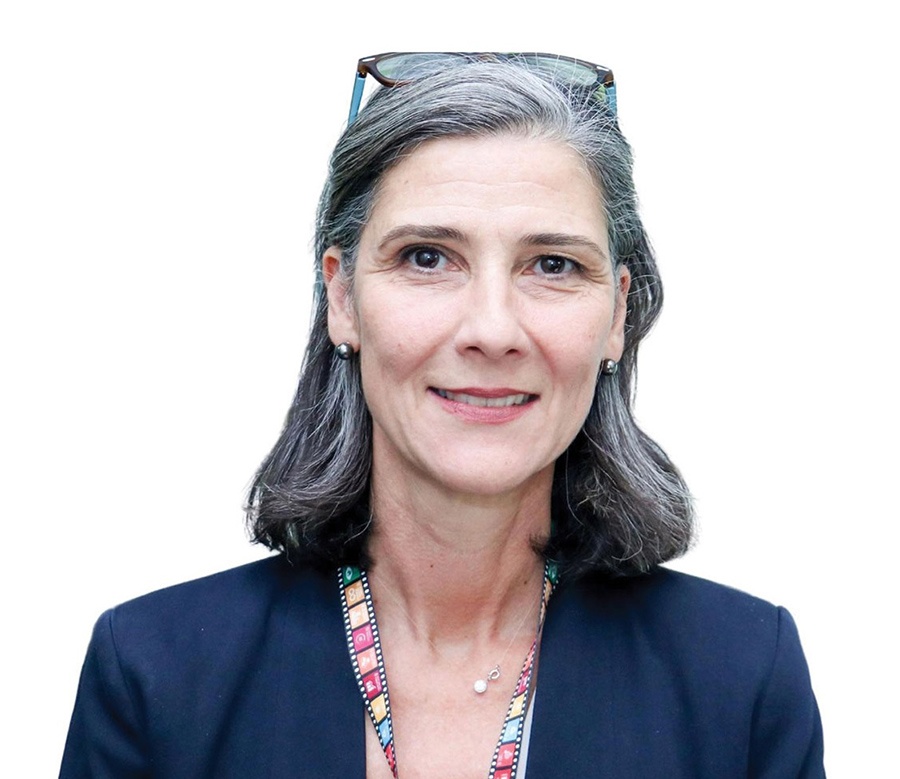Greener principles will light a path for climate victory
The UN Secretary-General has repeatedly sounded the alarm on the catastrophic impacts of climate change and urged for immediate and dramatic action to limit global temperature rise and avert the worst consequences of climate change.
 |
| Ramla Khalidi - Resident representative in Vietnam United Nations Development Programme |
This year marks the halfway point of implementing the Sustainable Development Goals (SDGs). Looking back, Vietnam has made extraordinary progress on its targets, particularly those related to poverty, education, clean water, infrastructure, inequalities, and partnerships.
However, according to Vietnam’s review on implementation of the SDGs presented in New York last month, the country needs to accelerate efforts to achieve some goals by 2030, especially on sustainable cities and communities, responsible production and consumption, climate action, life below water, and life on land.
On climate change, Vietnam has been successful in setting up institutional arrangements for a whole of government approach. It has actively championed global cooperation to implement the Paris Agreement. In 2021, the nation made a strong commitment to achieve net-zero emissions by 2050. And most recently, the declaration by Vietnam and the International Partners Group last December provided the basis for the Just Energy Transition Partnership (JETP).
The United Nations Development Programme (UNDP) is proud to have worked with the Vietnamese government and other partners in Vietnam over the past 45 years, and we will continue to move forward important policies and agendas on climate change mitigation and adaptation, plastic reduction and pollution control, forestry and biodiversity conservation, and recent developments on the JETP.
Vietnam has determined to pursue green and digital pathways for both economic prosperity and environment sustainability. For example, the country’s potential for a flourishing ocean economy is vast. The nation’s strategy for sustainable development of Vietnam’s marine economy by 2030, with a vision to 2045, has set a clear framework for expanding Vietnam’s ocean economy.
A 2022 report by the UNDP and the Ministry of Natural Resources and Environment (MoNRE) demonstrated how blue economy scenarios could increase the GDP of Vietnam’s marine economic sectors by 34 per cent – or $23.5 billion annually – by 2030. This same report highlighted how accelerating marine spatial planning can unlock the tremendous potential for offshore wind power development.
The linear take-make-waste economic model has put increasing pressure on ecosystems and natural capital. At the same time, we know we must power towards a circular economy transition, which can generate $4.5 trillion globally in additional economic output by 2030.
The circular economy principles adopted in the country’s socioeconomic development strategy can guide the way. The UNDP has worked with the MoNRE to include circular economy principles in the Law on Environmental Protection and is currently supporting the development of a national action plan on circular economy to be submitted in the coming months.
Our efforts will not succeed unless we sustain the forests, other natural ecosystems, and biodiversity that nurture life on earth and support our resilience to the challenges posed by the changing climate.
The UNDP will also work with Vietnam in materialising the national biodiversity strategy and policies that provide valuable frameworks and steps to fulfil the Global Biodiversity Framework adopted by 196 members of the Convention on Biological Diversity in Canada in December 2022.
Meanwhile, there are three key areas where we could focus our efforts to 2030 and beyond. Firstly, a just energy transition is a fundamental step towards achieving net-zero emissions, with a threefold impact on climate change, energy security, and social welfare. The UNDP commits to providing technical support to put in place an enabling legal framework and a feasible investment plan for the JETP.
The second area is completing the institutional and legal framework for the circular economy, in which the private sector is enabled to play a central role in bringing forward innovative solutions and resources. The last aspect is facilitating the role and contributions of Vietnam’s youth, as they are the future leaders who will handle the climate crisis. The UNDP is working with the government to identify and promote opportunities to engage the private sector and youth on climate change and environmental protection.
| Commitment proves Vietnam is serious on change Catalysing change for all of society |
What the stars mean:
★ Poor ★ ★ Promising ★★★ Good ★★★★ Very good ★★★★★ Exceptional
Related Contents
Latest News
More News
- Citi economists project robust Vietnam economic growth in 2026 (February 14, 2026 | 18:00)
- Sustaining high growth must be balanced in stable manner (February 14, 2026 | 09:00)
- From 5G to 6G: how AI is shaping Vietnam’s path to digital leadership (February 13, 2026 | 10:59)
- Cooperation must align with Vietnam’s long-term ambitions (February 13, 2026 | 09:00)
- Need-to-know aspects ahead of AI law (February 13, 2026 | 08:00)
- Legalities to early operations for Vietnam’s IFC (February 11, 2026 | 12:17)
- Foreign-language trademarks gain traction in Vietnam (February 06, 2026 | 09:26)
- Offshore structuring and the Singapore holding route (February 02, 2026 | 10:39)
- Vietnam enters new development era: Russian scholar (January 25, 2026 | 10:08)
- 14th National Party Congress marks new era, expands Vietnam’s global role: Australian scholar (January 25, 2026 | 09:54)

 Tag:
Tag:



















 Mobile Version
Mobile Version